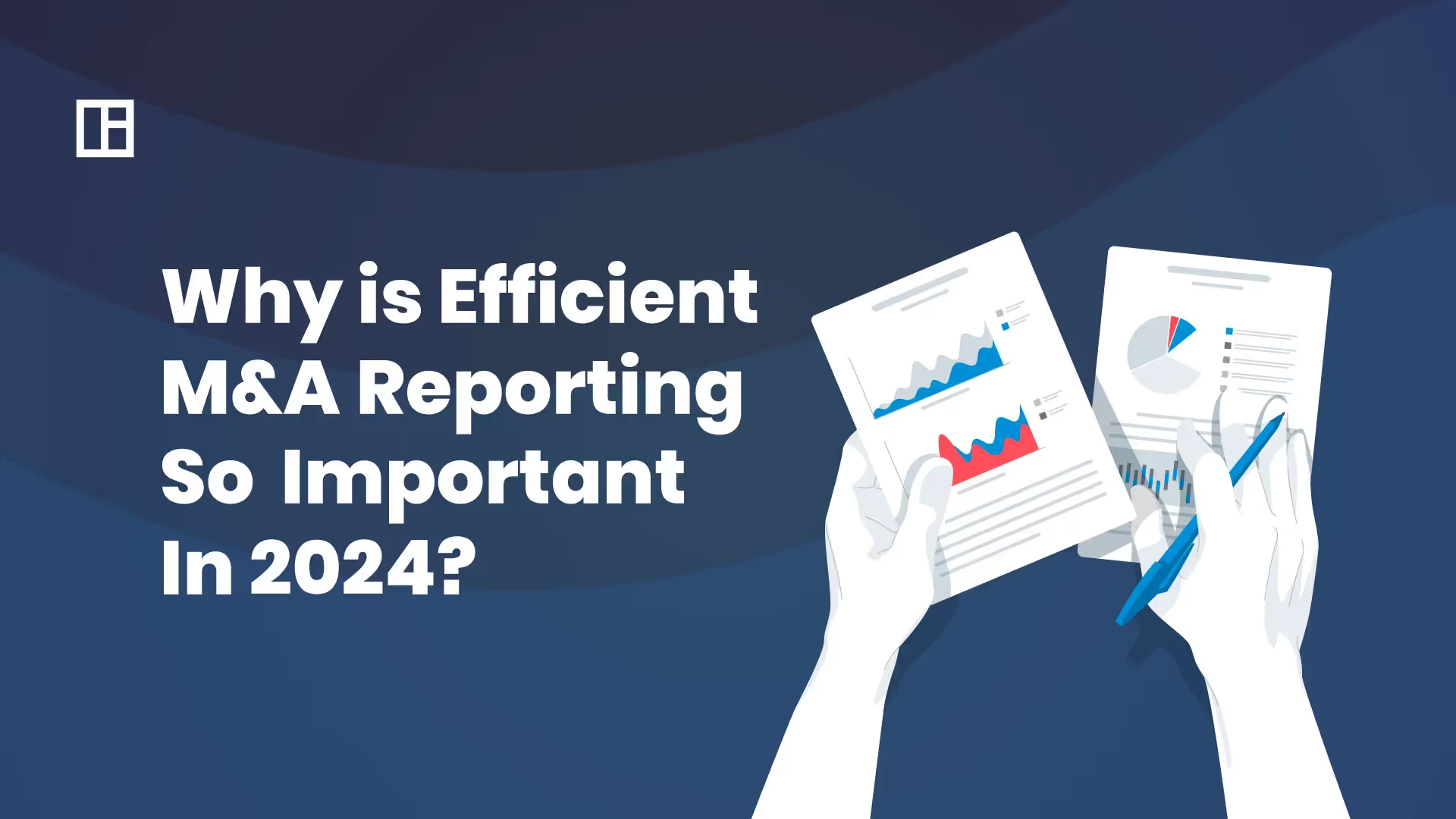Analytics can play a pivotal role in enhancing M&A deal pipelines.
Not only do they enable deal participants to process more data, but they also ensure that the data is easier to disseminate, so that everybody is informed about where their company is on its M&A journey.
Ultimately, being more informed leads to better decisions, better dealmaking, and increased value generation.
Below, we look at the importance of efficient M&A reporting to dealmaking teams.
The Context
The three V’s of big data - volume, velocity, and variety - set the backdrop to the evolution which the M&A process has undergone over the past decade, and continues to undergo at the time of writing.
In 2023, an estimated 120 zetabytes of data were consumed globally - approximately 10 times the same metric a decade before. Furthermore, the figure is still accelerating, predicted to reach 180 zetabytes by the end of 2025.
A significant proportion of this is driven by the corporate sector. Companies tracking more data on their own interactions, internal operations, and analysis of the markets they operate in. It should be readily apparent what difference analytics has made here.
Conseqeuetly, in the realm of M&A, firms on both sides of a transaction have seen the data they need to process multiply with each additional target, creating an opportunity for efficient M&A reporting.
.avif)
The Impact
Within this context, what is the impact that efficient M&A reporting can make?
When answering this question, a good place to start is to consider an M&A auction sales process with a range of bidders competing to acquire a company. In our example, efficient M&A reporting affords the seller an opportunity to present their company’s data in a way that creates a coherent, transparent, and digestible story for the bidders.
This is just the beginning, however. The benefits also proliferate for the bidders in our example.
{{widget-hsembed}}
They’re no longer overloaded with data, they’re empowered by it. M&A reporting tools leverage the availability of data and analyze it to make rapid and effective decisions around potential transactions.
In cases where a bidder is the only one to possess this technology, it gives them a tangible advantage over its competitors.
Other benefits from leveraging M&A reporting tools include:
Better Corporate Development
Better reporting equates to better corporate development. M&A deal participants should be able to gain a quick understanding of where the process is (opportunities, risks, and process) across all of the potential target companies in the pipeline.
This is possible with reporting tools.
.avif)
Individual Deal or Deal Comparison
M&A reporting tools allow for easy drilling down on data to enable the deal team to conduct a deep dive of a single target or compare two or more targets across various metrics (e.g., TTM income, growth, income projections, synergy projections, etc.)
Data Analysis
The primary purpose of M&A reporting tools is also where it adds most value. Robust data analytics can shine a light on companies that appear to be attractive targets on the surface - even after cursory due diligence - by showing trends, outliers, and predictive analysis for those companies based on their data.
Dynamic Modelling
M&A by its nature leads to dynamic situations. Efficient M&A reporting tools enables teams to obtain real-time data and to test various scenarios based on that data - something which would have been impractical even just a few years ago.
Seamless Communication
In M&A, communication is treated by some firms as sales talk rather than intelligence gathering, where most value is added. M&A reporting tools enable participants to gather, analyze, and present data, enabling faster decision making, risk assessment, and due diligence/PMI.
M&A transactions have been a nexus of data points like never before.
If managed properly, dealmakers can turn this new reality to their advantage, both before and after a deal closes. M&A reporting tools turn data into knowledge - something that should be of interest to every corporate development team.
It also means that the due diligence process is transformed from being a one-off exercise into a process that drives a company’ future performance.








.webp)











.avif)
.avif)
.avif)



.avif)
.avif)
.avif)




.png)
.png)
.png)
.svg)

.svg)
.avif)
